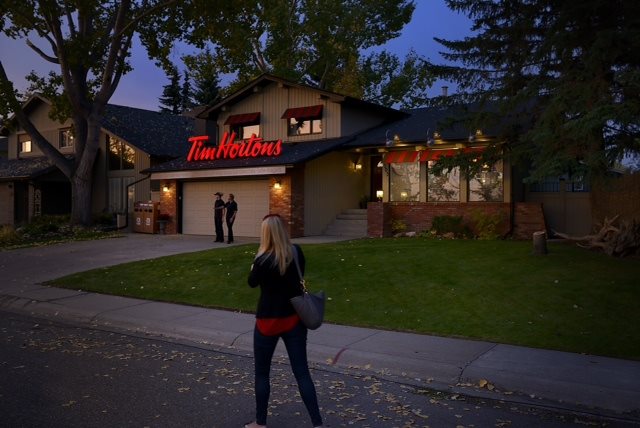Breaking
Tim Hortons takeover by Burger King may prove stale for Canadians: study
TORONTO — Widespread layoffs and strict cost cutting measures could befall Tim Hortons if Burger King’s parent company takes over the chain, says a study from the Canadian Centre for Policy Alternatives.
The left-leaning think-tank released a scathing review of 3G Capital’s past takeovers on Thursday and concluded that the Brazilian private equity firm’s track record is predictive of “overwhelmingly negative consequences for Canadians” and the Tim Hortons restaurant chain.
“Without additional strong assurances from 3G Capital that no jobs will be lost … this may not be in the net benefit of Canada,” said CCPA senior economist David Macdonald, who was involved in the preparation of the report.
The policy centre said 3G Capital hasn’t made a suitable case for how the merged company benefits Canadians and it’s urging the federal government to demand “a better deal” before it approves the transaction.
Included in its analysis is the assumption that the investment company, in its US$11-billion takeover of the Canadian company, would follow a similar playbook to past takeovers.
The report suggests 3G Capital’s debt financing could force Tim Hortons to layoff more than 700 employees — or 44 per cent of staff working outside its restaurants — as its tries to manage the debt of the merged company.
The new obligations could pressure Tim Hortons to cut costs, reduce investments and squeeze more from its franchisees, the report said.
The expectations are based on the investment company’s track record in past takeovers where thousands of employees were laid off at food company Heinz and beer company Anheuser-Busch.
While Burger King’s parent company promised to keep the headquarters of Tim Hortons in Oakville, Ont., there have been “grossly inadequate” workforce commitments that have left no guarantees when it comes to overall employment levels or potential mass layoffs, the report said.
Earlier this week, Canada’s Competition Bureau approved the takeover plan to buy Tim Hortons, saying it’s unlikely to reduce competition due, in part, due to the large number of fast food competitors.
While Tim Hortons and Burger King have promised the merger will allow the fast food companies to grow in the U.S. and internationally, the study raises concerns about how 3G Capital could respond if everything doesn’t go according to plan.
“If the preferred strategy of expansion in the U.S. doesn’t pan out, which has been a longtime problem for Tim Hortons, one of the fastest ways to extract value is by squeezing Tim Hortons,” he said an interview.
Some of the possible options to reduce expenses would be to spin off Tim Hortons’ distribution and manufacturing centres to a third partly, which could change the quality of its coffee beans or at least give it less control over the process.
The report also suggests the investment firm could shuffle around finances in order to pay fewer taxes in Canada, which could cost the Canadian government between $355 million and $667 million in lost tax revenue over the deal’s first five years.
Since the Tim Hortons merger was announced in August, some analysts and franchisees have raised concerns over 3G Capital’s reputation for stripping the assets of acquired companies to boost profits.
Desjardins analyst Keith Howlett published a note at the time questioning the “unusual ending to a two-year CEO search and strategic plan” with a takeover from a burger chain.






















